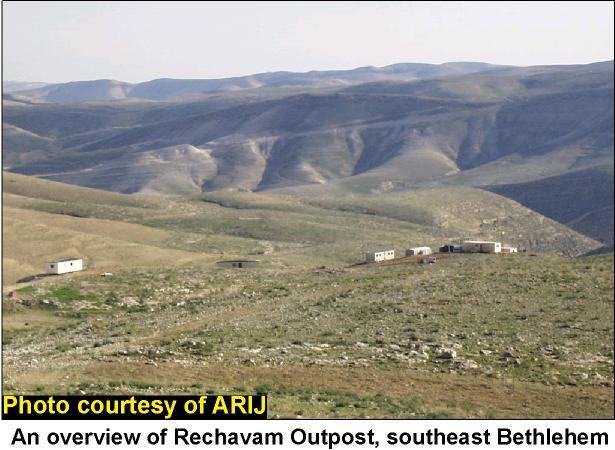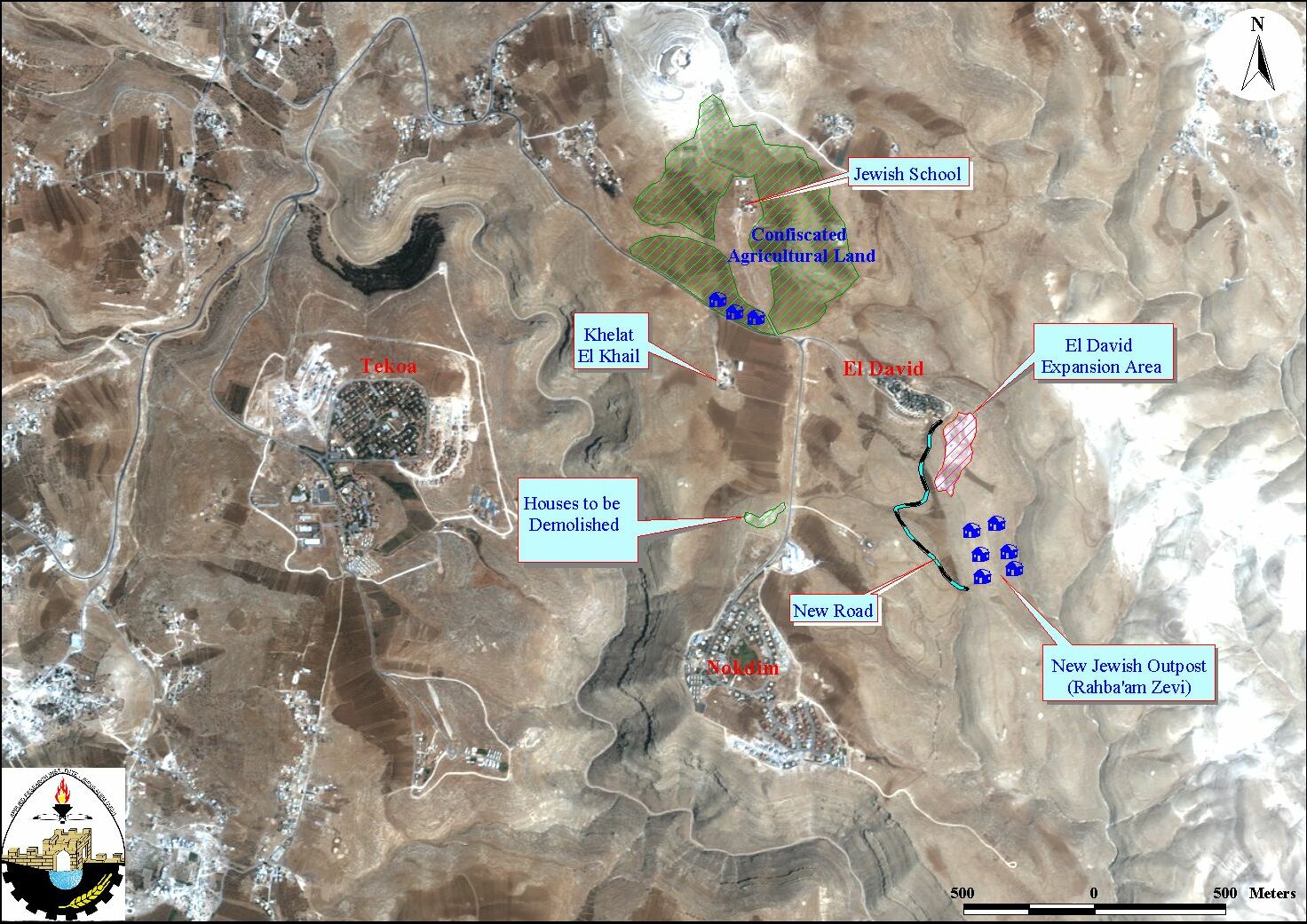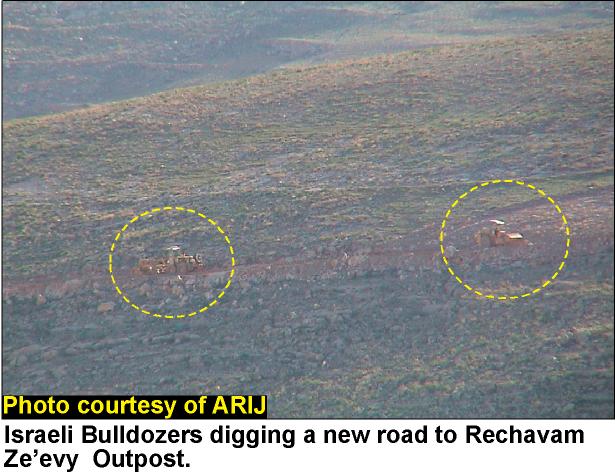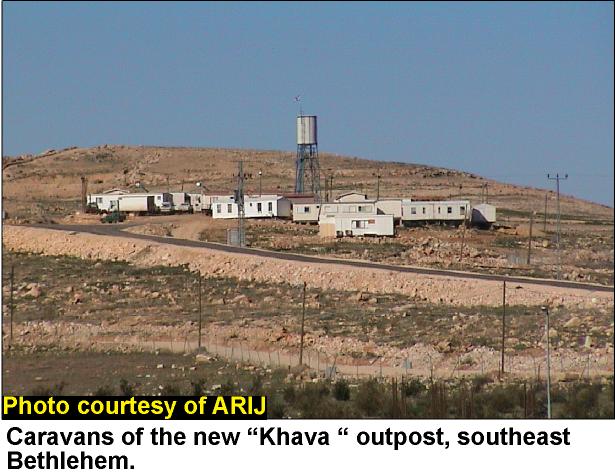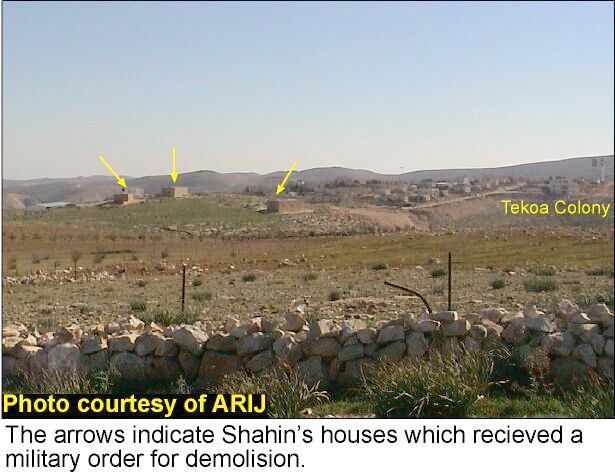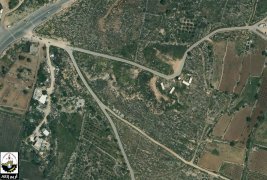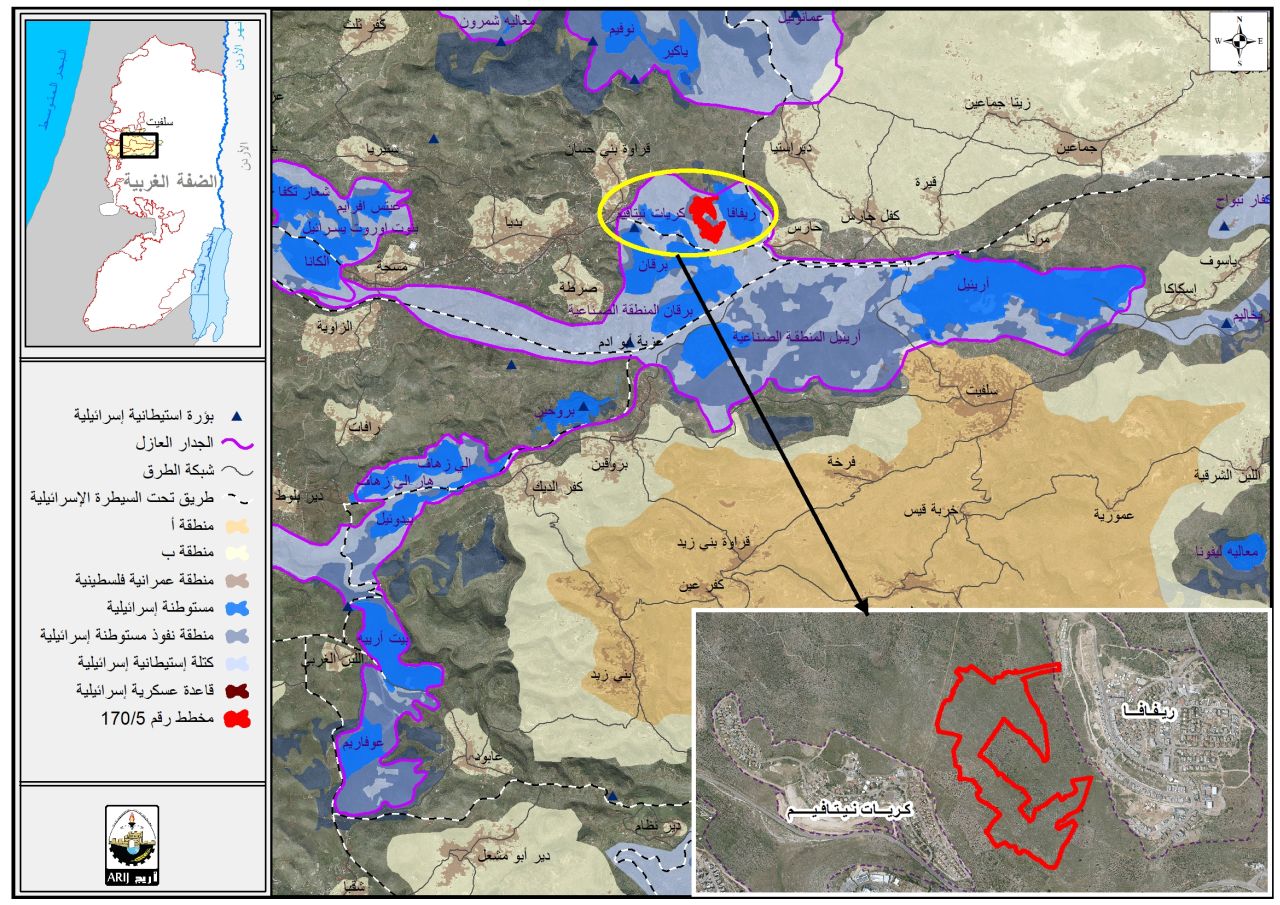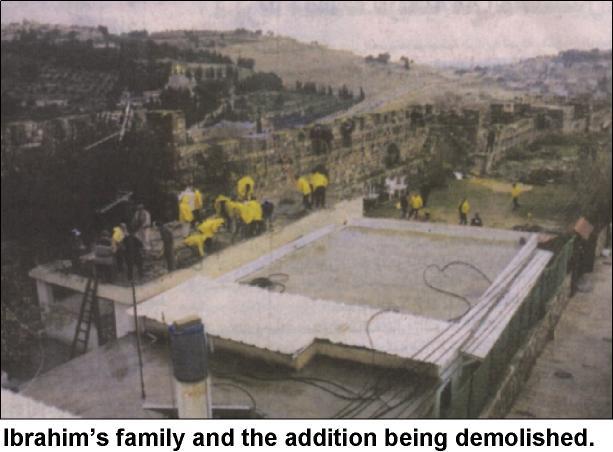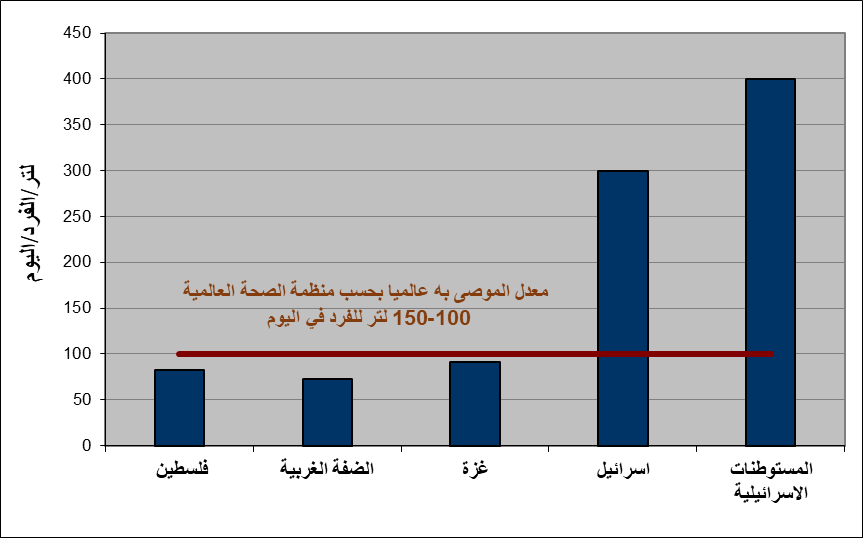The ongoing expansion of Israeli settlements inside the Palestinian Territories has not stopped since Sharon came to power. The so-called settlement outposts are used by Sharon to re-assure his right-wing coalition of his commitment towards colonization in the West Bank and Gaza Strip. Recently, a group of settlers have started establishing a new illegal outpost in Bethlehem, which has been given the name of ' Rechavam Ze'evy ' after the late Israeli minister slain on October 17th. See Photo 1
The confiscated hilltop belongs to Al-Salahat family in an area called Dar-Jdar area in Bethlehem. The area is located approximately 600 meters southeast of El David (Kfar Eldad) settlement. The hilltop overlooks a vast desert in Bethlehem that extends all the way to the Dead Sea. The expropriation of this hilltop is consistent with Israel's confiscation policy that has aimed to use Palestinian mountains and hilly areas for settlement construction. See Satellite Map.
It is important to note that there was no military order stating that the above-mentioned hilltop was to be confiscated for Israeli construction purposes. The owners of the land did not receive any warning about the confiscation. The Jewish settlers of El David prevented the owners from reaching their land by forceful and violent means.
A two kilometer road with a width of 10 meters is under construction. This road will connect the existing El David settlement with the new outpost, See Photo 2.
Israeli bulldozers are still working on the road despite the fact that Israeli government lacks any kind of legitimate right to do so within the West Bank and Gaza Strip including Jerusalem.
The UN resolution 465 (1980) clearly states '' The security council determines that all measures taken by Israel to change the physical character, demographic composition, institutional structure or status of the Palestinian and other Arab territories occupied since 1967, including Jerusalem, or any part thereof, have no legal validity and that Israel's policy and practices of settling parts of its population and new immigrants in those territories constitute a flagrant violation of the Fourth Geneva Convention relative to the Protection of Civilian Persons in Time of War and also constitute a serious obstruction to achieving a comprehensive, just and lasting peace in the Middle East''.
Since 1977, more than 1300 Dunums have been confiscated within the southeastern parts of Bethlehem for building settlements. See Table 1 for the names of settlements constructed. See Table 1
|
Name |
Date |
Area (Dunum) |
|
Tekoa |
1977 |
871 |
|
Nokdim |
1982 |
338 |
|
Kfar Eldad (El David) |
1982 |
94.6 |
|
Rechavam Ze'evy new outpost |
2002 |
– |
Source: ARIJ GIS database
Furthermore, Palestinian farmers have had difficulty reaching and cultivating their agricultural lands located near Kfar Eldad and Tekoa settlements. About four hundred dunums had been confiscated and fenced by settlers of khava (the farm) few months ago, See Photo3. The settlers attacked Palestinian farmers many times while picking their olives and collecting the harvest.
Also, the Shahin family received a military order stating the decision of demolishing three of the family's houses built within the vicinity of Tekoa settlement. See Photo 4
Shahin , the owner of the houses, showed us documents that certify his ownership of the houses. The documents date back to the British mandate period and the houses were registered on the 6th of November 1944. See Photo 5
While on location, ARIJ fieldworks noticed the ongoing expansion south of El David settlement. The Israeli bulldozers were working in an area of 28 dunums, See Photo 6, It is worth mentioning here that El David settlement increased its area up to 224% since 1996.
Yet, these days, the fieldworkers' fulfillment of their duty to monitor Israeli colonizing activities is entailing considerable risk. As the fieldworkers were going about doing their job two armed settlers stopped them for more than an hour. Claiming they were ''settlement security men'', they demanded the fieldworkers hand in their equipment (i.e.: cameras, maps, cellular phones) or else they would be kept in the desert for the rest of the day. After a long dispute, they left the area and ARIJ fieldworkers managed to come back to the institute safe and sound.
Prepared by:
The Applied Research Institute – Jerusalem


